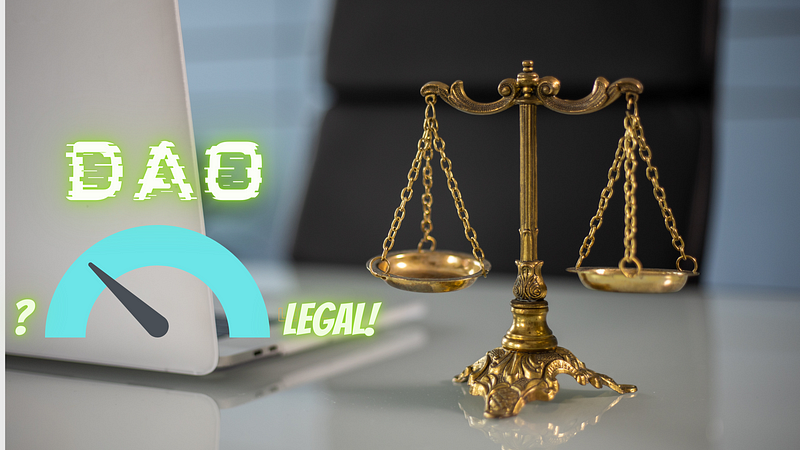Legal Recognition of DAOs: Wyoming's Groundbreaking Legislation
Written on
Chapter 1: Introduction to DAOs
In a significant move, Wyoming has become the first state in the U.S. to legally recognize Decentralized Autonomous Organizations (DAOs). This development marks a turning point as DAOs gain traction in the mainstream business landscape.

Historically known as a haven for free thinkers, Wyoming was the first state to permit the establishment of Limited Liability Companies (LLCs) back in 1977. Fast forward to today, and LLCs have become the predominant business structure across the nation. It comes as no surprise that the state has now passed Senate Bill SF0038, which outlines the framework for how a business can operate as a DAO, detailing the rights and responsibilities of its members. This legislation allows existing LLCs to transition into DAOs by adjusting their articles of organization and offers enhanced protections for DAO members.
Section 1.1: What is a DAO?
A Decentralized Autonomous Organization (DAO) is essentially a company governed by rules encoded in smart contracts rather than by human management. Utilizing blockchain technology, DAOs streamline transactions and remove the necessity for intermediaries. This innovative structure aims to foster fairness by diminishing human biases in decision-making processes.
In traditional corporate environments, senior executives often make unilateral decisions that can significantly impact the entire organization. DAOs, however, distribute decision-making power among investors, allowing them to vote on key issues. The execution of these decisions is managed by pre-written smart contracts, with voting rights typically allocated based on the quantity of DAO tokens each member holds.
Subsection 1.1.1: Key Characteristics of DAOs
- Non-hierarchical structure
- Transparency in operations
- Democratic procedures for changes
- Execution governed by smart contracts
- Open access for participation
- Capacity to engage external entities as needed
Section 1.2: Legal Challenges Facing DAOs
Despite the emergence of numerous DAOs over the past four years, a significant challenge has been the lack of legal recognition. Regulators have been slow to adapt, primarily due to the complexities in defining liability when issues arise. Until recently, DAOs were categorized as either corporations or LLCs, placing individual investors at risk for any harm caused by the organization, regardless of their direct involvement in negative events.
Chapter 2: Wyoming’s Legislative Breakthrough
The passage of Wyoming’s DAO Supplement bill marks a pivotal moment in the legal landscape for DAOs, as it uniquely categorizes them as a type of limited liability company.
Key features of this bill include:
- Limited liability for owners
- More flexible management structures than traditional corporations
- Default roles tailored specifically for DAOs
- Options for either member-managed or algorithmically managed operations
- Recognition of smart contracts as the primary governing document for member rights
- Clear definitions of roles, responsibilities, and liabilities within the DAO framework
For those interested, the complete text of the bill can be accessed here:
What Lies Ahead?
Effective July 1, 2021, this legislation sets a precedent that could inspire other states and countries to adopt similar measures aimed at recognizing DAOs. This move is largely driven by the desire to attract digital financial investments.
Although the bill provides a layer of protection for businesses established in Wyoming, it does not fully shield them, as the U.S. federal government and other international jurisdictions have yet to formally acknowledge DAO entities.
Individuals looking to establish or participate in a DAO must remain vigilant about the evolving legal landscape to ensure compliance and safeguard the protections they anticipate.